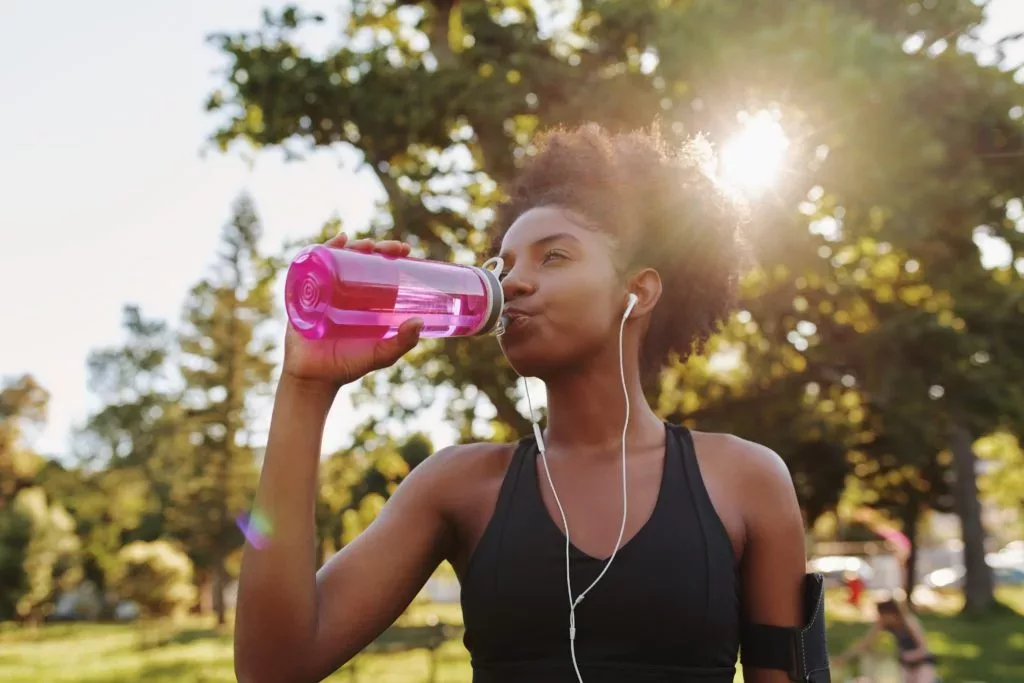
Optimal Hydration
by Dr. Kelley Garrison
Licensed Naturopath to Foothills Naturophatic
Addressing Optimal Hydration
Although everyone knows that water is essential for life, most don’t understand why drinking enough water is so important. Without water, humans can only survive for a matter of days.
To prevent dehydration all land animals (us humans included) have evolved very sensitive physiological controls to maintain proper hydration by stimulating thirst. The kidneys play a key role in regulating body water, by retaining more water when inadequate fluid intake is sensed or excreting more water when water is consumed in excess. Furthermore, kidney function is optimized with an abundant water supply. If water is in short supply, this costs the body more energy and places more stress on the kidneys. When water intake is inadequate combined with a diet high in salt (think a processed, standard American diet) or toxic substances like alcohol, it is especially taxing on the kidneys.
Impacts of Dehydration on Health
Dehydration can impact our health in many ways. Short term dehydration can negatively impact physical performance as well as cognitive performance and mood. Chronic dehydration can lead to delirium, constipation, impaired kidney function, impaired heart function or blood pressure regulation, migraines, and poor skin health.
A recent study also found that chronic dehydration can age you faster! Do I have your attention now? The researchers found that individuals with a high normal serum sodium level above 142 millimoles per liter were more likely to be biologically older and have increased risk of premature death than those within 138-142 mmol/l. The results indicated that maintaining optimal hydration may indeed slow down the aging process. However, serum sodium levels in the lower range of normal, 135-137 mmol/l, is also attributed to increased mortality, either due to inadequate sodium intake or diseases causing electrolyte dysregulations.
General Recommendations
The National Academy of Medicine suggested an adequate daily intake of water to be 13 cups (104oz) for men and 9 cups (72oz) for women (10 cups if you’re pregnant and 13 cups if you’re breastfeeding). It is estimated in the USA that about 20% of water consumed comes from food, like water-rich fruit and vegetables. Therefore, the amount of water you need to drink should be around 8 cups for women and 11 cups for men.
Since body size, exercise, alcohol, medications, and temperature all impact fluid needs, it is hard to say exactly how much you need specifically. Unfortunately, studies highlight that most of us are not drinking enough. A recent research study of young college students found that only 58% of men and 48% of women studied met daily fluid recommendations in the USA. Furthermore, the National Health and Nutrition Examination Survey of 2015-2018 found that on average adults only drank 44oz (5 ½ cups) of water per day, with those aged 20-39 drinking the most (51oz/6 cups) and those >60 years of age drinking the least (36oz/4 ½ cups). Studies have shown that sensitive physiological controls decrease with age, therefore it is wise for the elderly to learn to drink habitually even when they are not experiencing thirst.
How to Monitor Optimal Hydration
Besides checking in with yourself and seeing if you are even close to meeting the general recommendations of 9 cups per day for women and 13 cups per day for men, you can get a rough estimate by monitoring your urine frequency and urine color. As most of us know, if your urine is dark, you are dehydrated. Ideally urine should be clear or pale yellow in color, like lemonade. However, a recent study found that urine frequency can also detect dehydration with good accuracy. if you are urinating less than 6x per day and feel “a little thirsty” throughout the day, then you likely have suboptimal hydration status. Furthermore, you can monitor your serum sodium trends over time on your CMP (complete metabolic panel). A normal serum sodium range is considered 135-146mmol/l, but try to aim for an optimal range between 138-142 mmol/l. If you tend to be over 142mmol/l then drink more water, if you are between 135-137, then add more salt to your diet. Ideally, use all three tracking methods (urine color, urine frequency, and serum sodium levels) to keep you optimally hydrated throughout your life.
How To Support Optimal Hydration
Consistency is key! If you are already falling significantly short from the general recommendation start slow. Aim to add in 1 cup more water each week until you meet your daily needs. Meanwhile, monitor how your health changes as you get closer to your goal. You might be surprised how many of your daily ailments improve. Otherwise, here are some of my favorite ways to boost my hydration status and make sure I am staying optimally hydrated every day.
- Buy a large water bottle (32oz) and fill it up 2-3 times (women twice, men three times) throughout the day with plain water. This will add up to 64oz/96oz of water, or 8 cups/11 cups. Then any other water you get through your food or other beverages will be a bonus!
- Keep a tall glass of water at your bedside and drink some water if you wake up in the middle of the night to pee.
- If you don’t like plain water, try mixing it up with sparkling water, herbal teas, or even sipping on plain hot water (I personally love this).
- Try to meet your daily fluid goal by drinking plain water. However, if you are looking for a little sweetness my favorite lightly sweetened beverages are coconut water, grass-fed milk, sparkling water with a splash of orange juice, or kombucha.
- Enjoy water-rich foods often like fresh fruits and vegetables, smoothies, soups, broths, and dairy/non-dairy beverages.
- Reduce or limit your alcohol intake, as this increases water losses.
- Add Trace Mineral electrolyte drops to your water for optimal hydration!